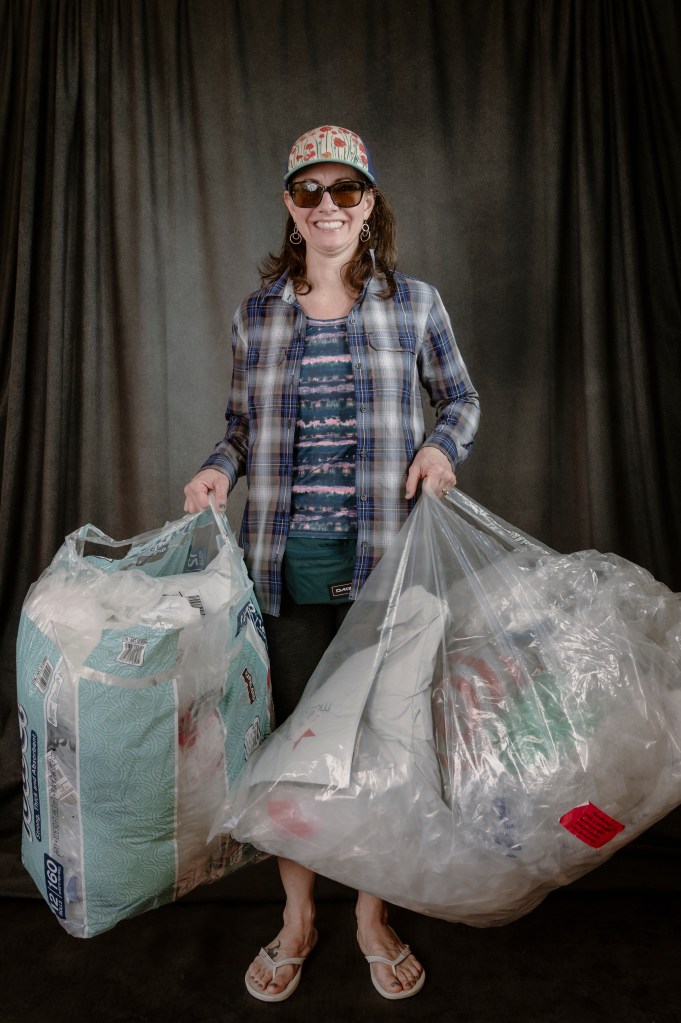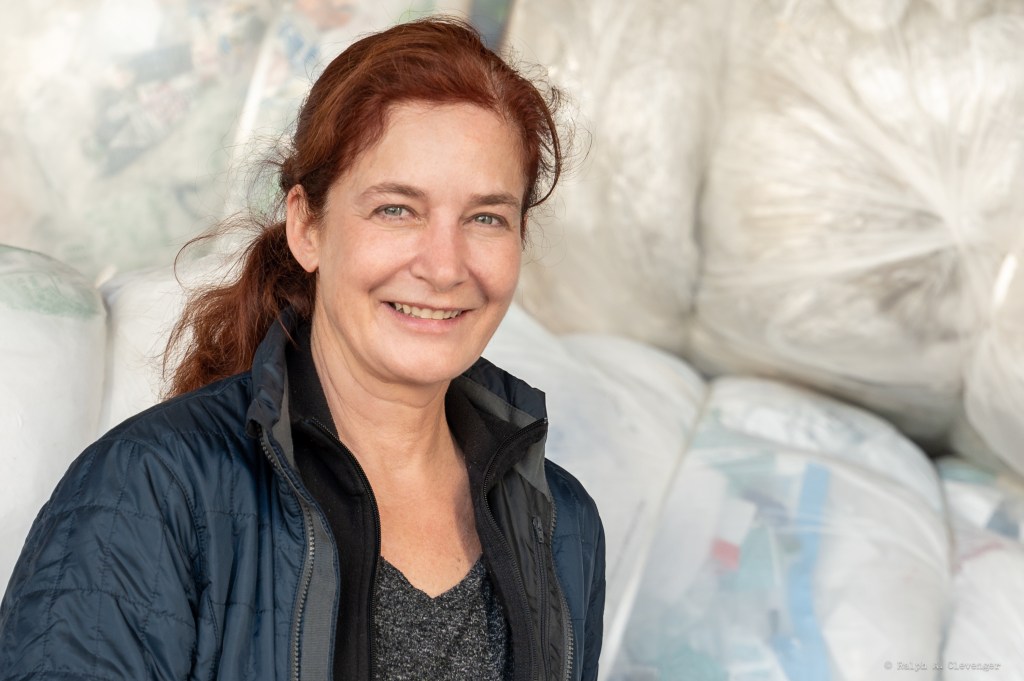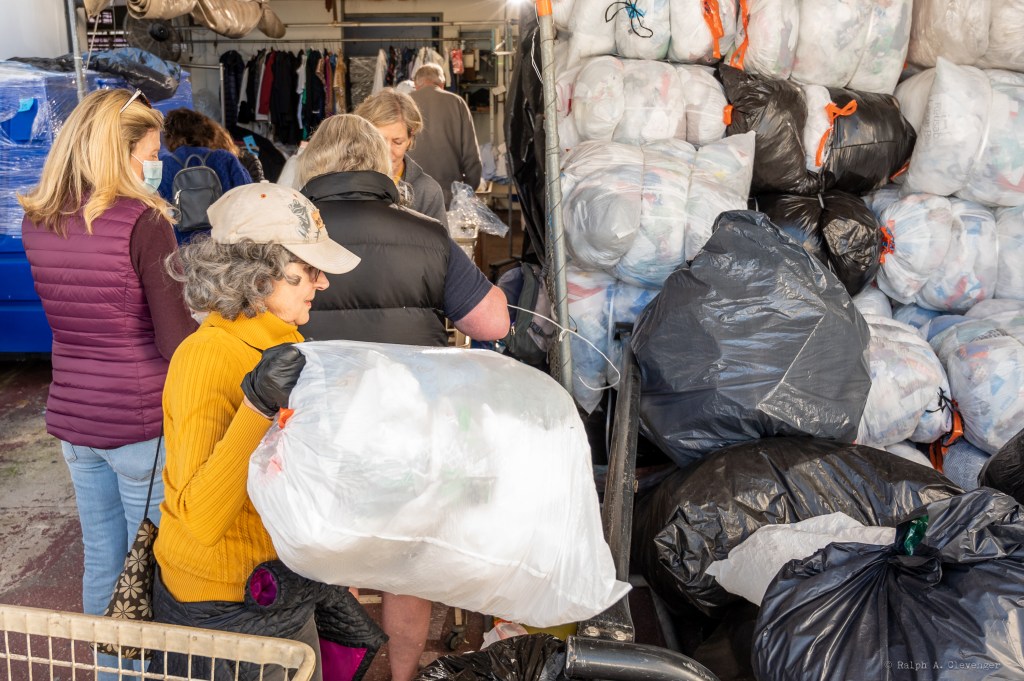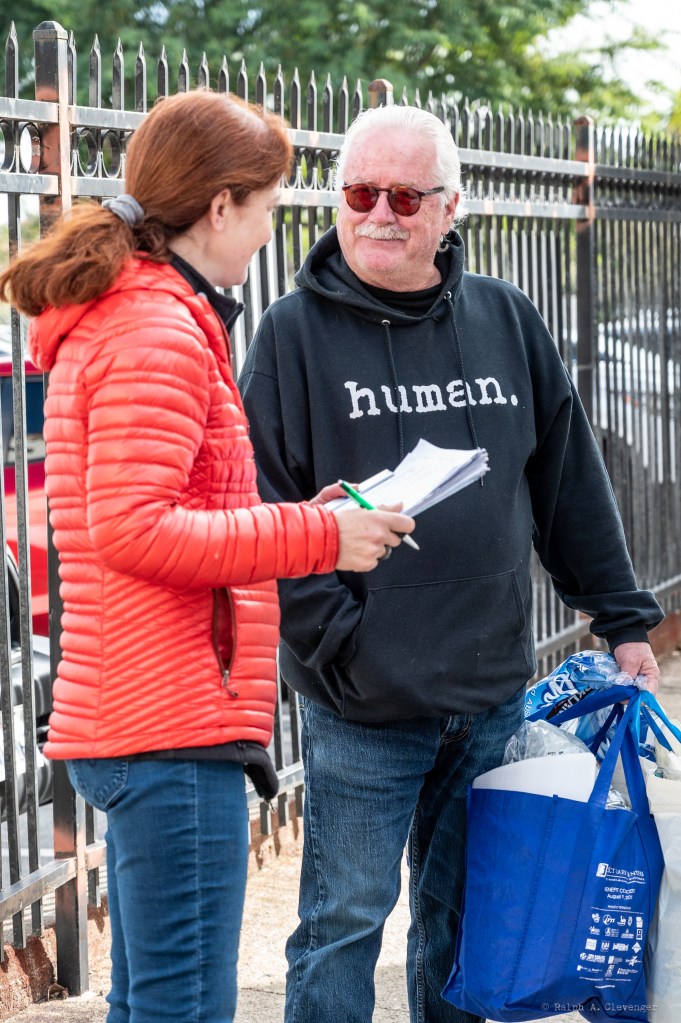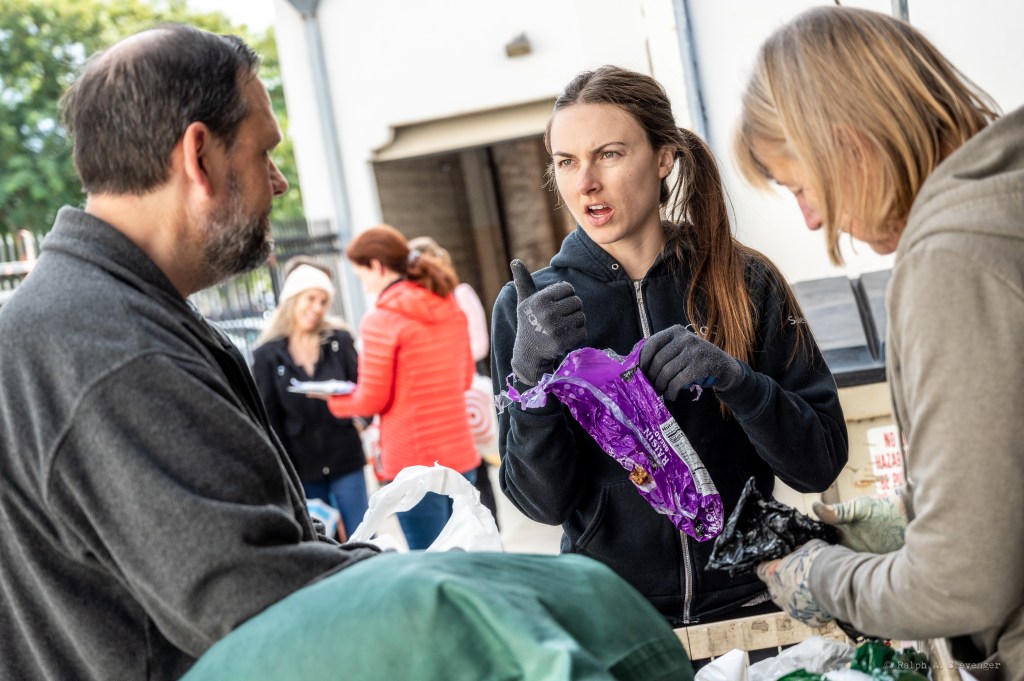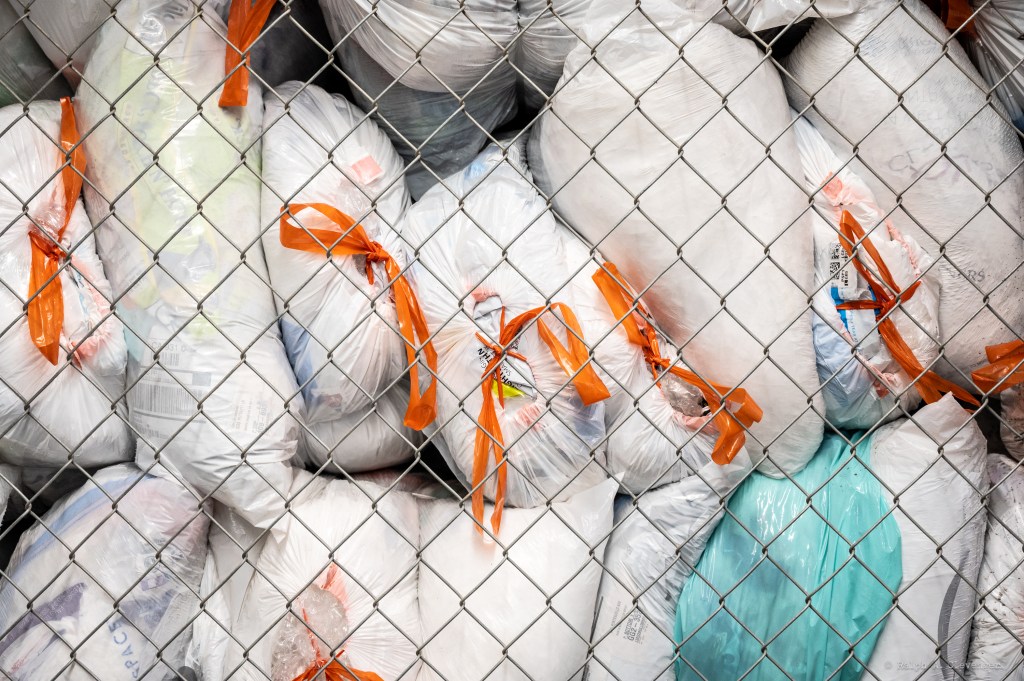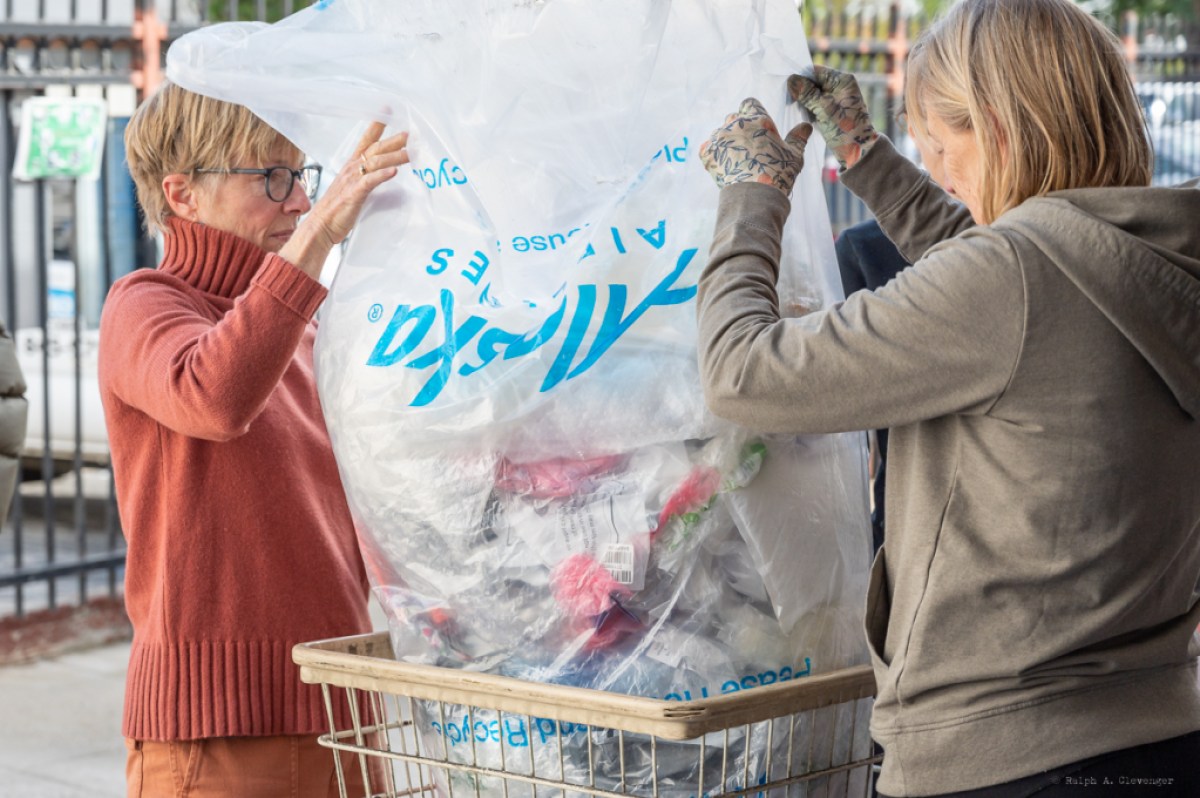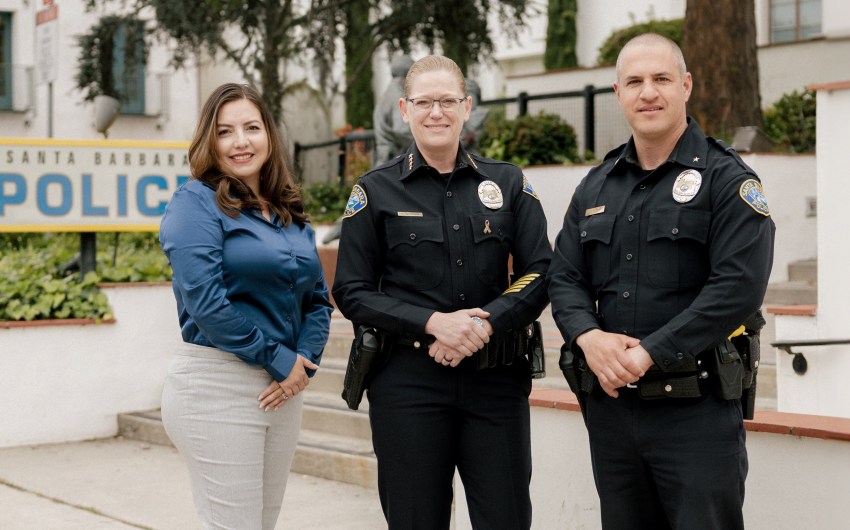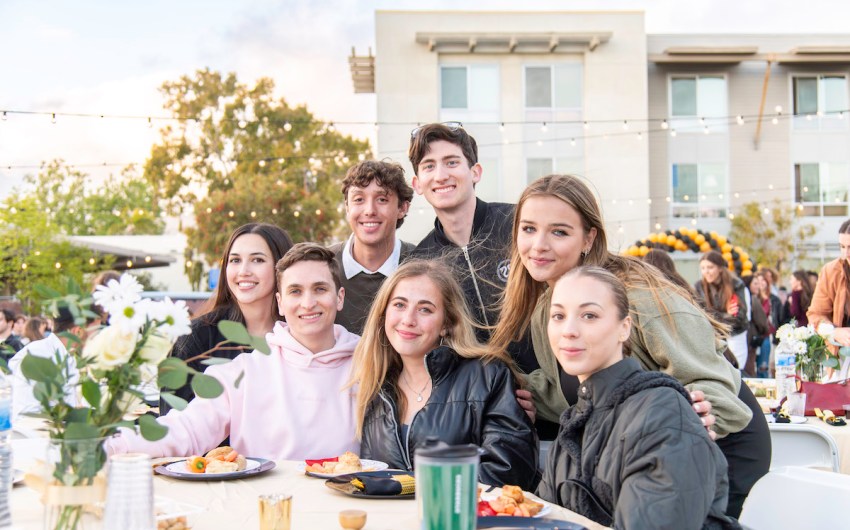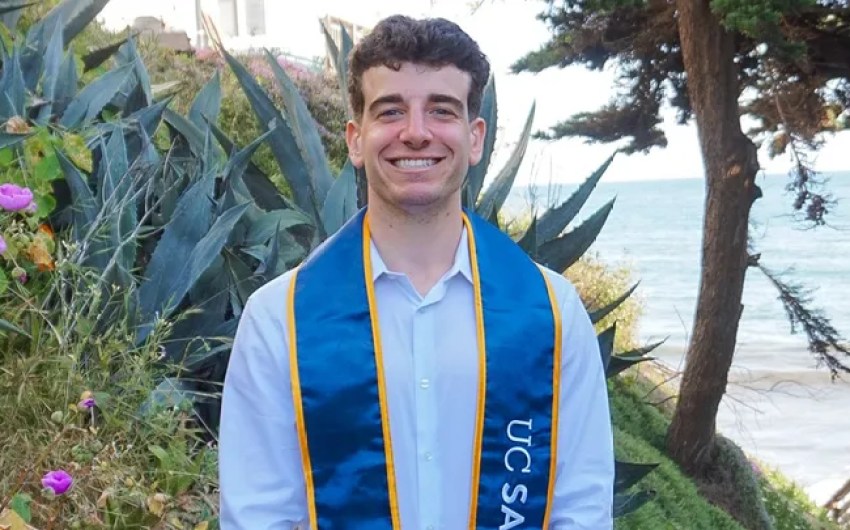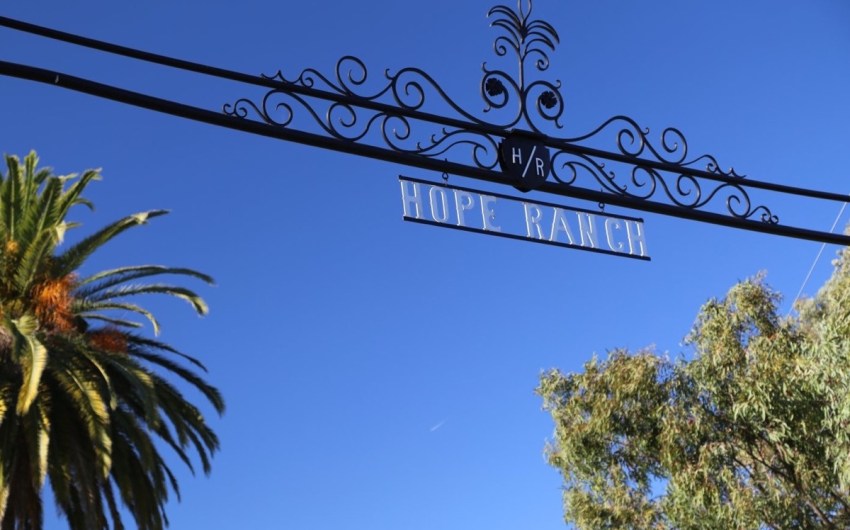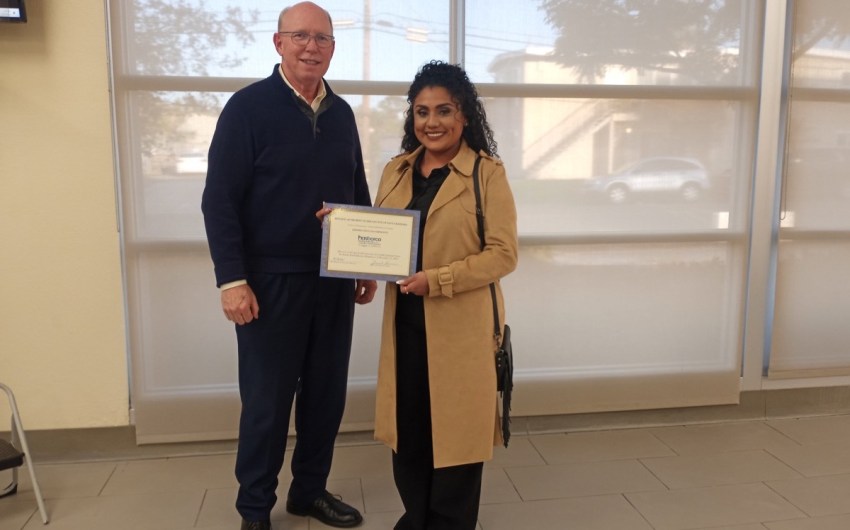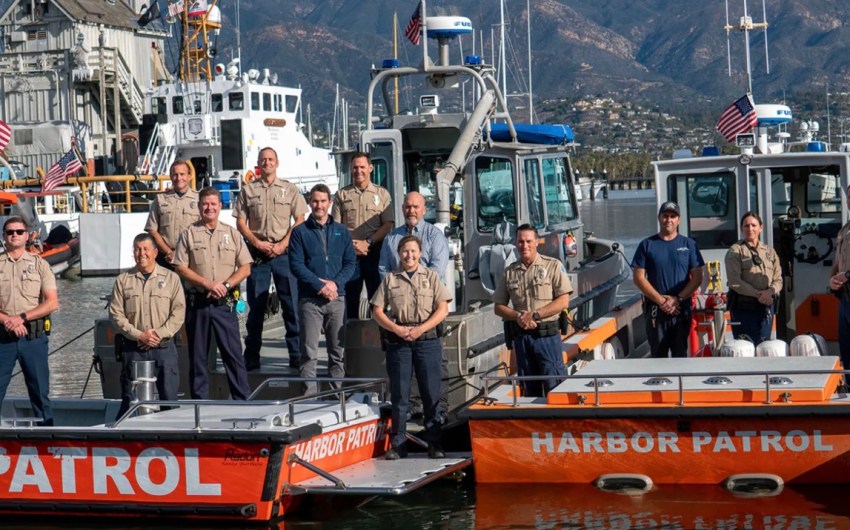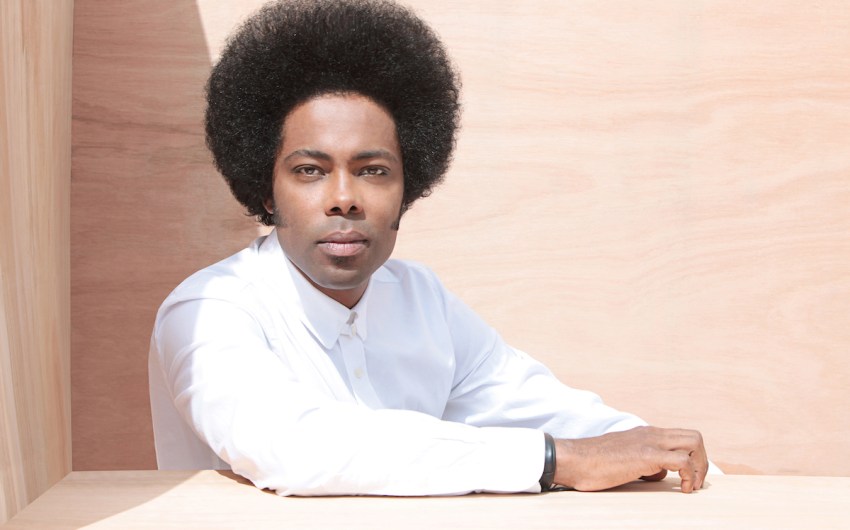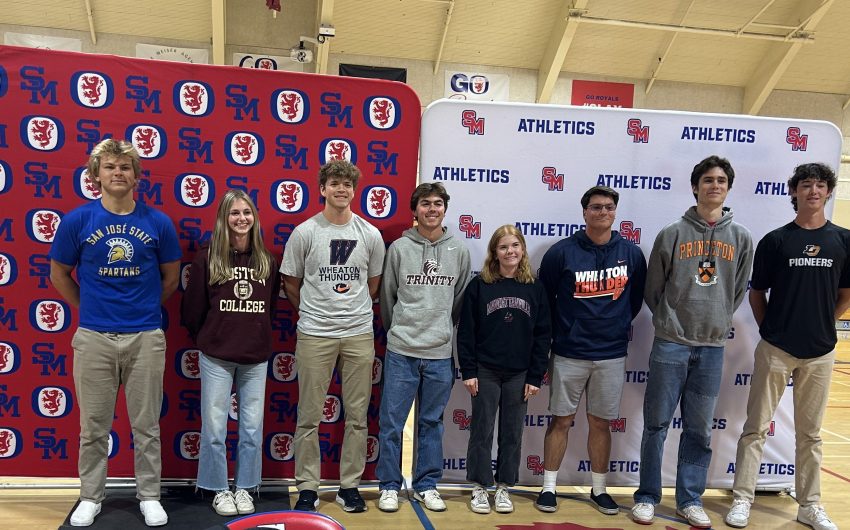Santa Barbara’s Planet Protectors Has Plans to Expand
Founder Sasha Ablitt Welcomes Community Participation
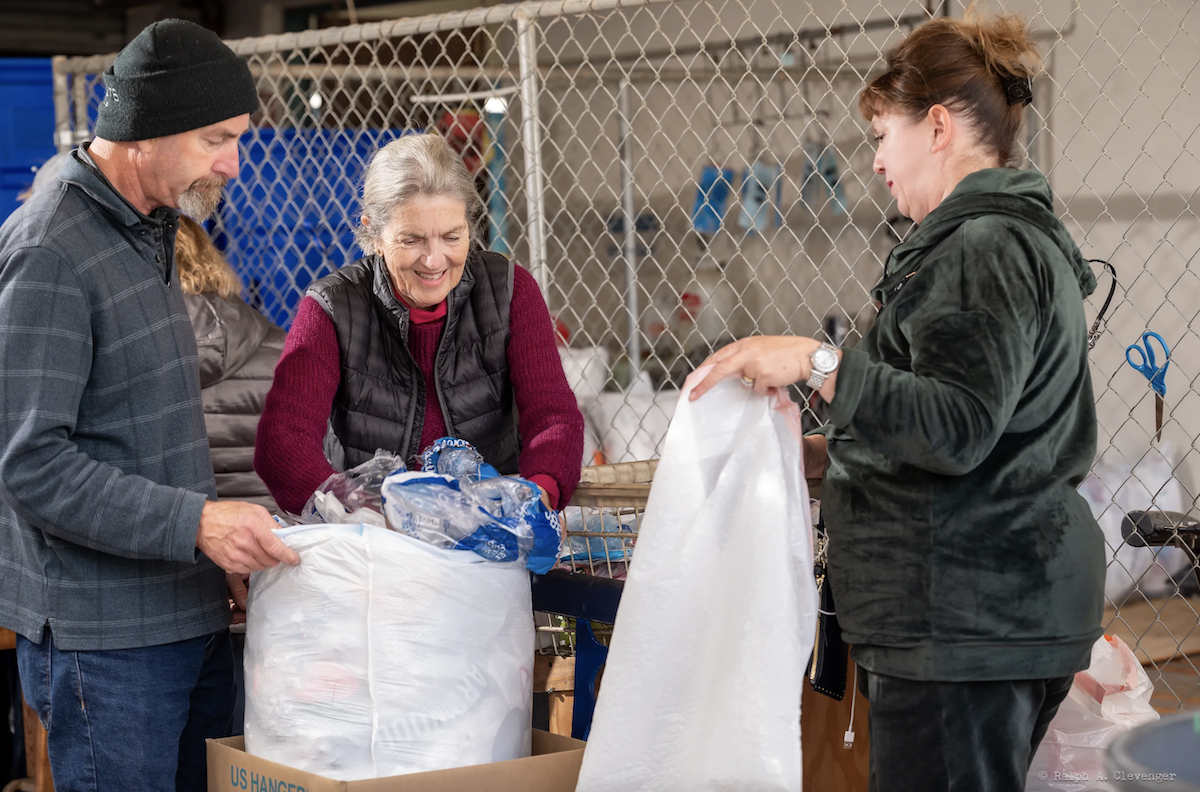
While standing in Ablitt’s Fine Cleaners and Tailors, Sasha Ablitt had a life-changing realization. Among the racks of plastic-clad clothing, she realized that she had to do something about all the waste. “When I looked at our racks of clothes and saw all that plastic, all that single-use plastic over every single order, it kind of hurt my heart to be a part of that,” Ablitt said gloomily. So, she educated herself to find out exactly how the plastic industry worked.
The plastic wraps that cover dry-cleaned garments are usually thin-film plastic. Ablitt found that this plastic type is hard to conventionally recycle, especially in small quantities. She wouldn’t accept this. “I’ve always been a bit of an environmentalist,” she laughed. After researching and dedicating herself to the cause, Ablitt finally found someone who would recycle the thin-film material. She discovered Trex — a wood alternative manufacturer — who at the time, accepted the thin-film plastic in small quantities. As a result, since 2005, Ablitt’s Cleaners has properly recycled their plastic and used eco-friendly dry cleaning methods. At Ablitt’s Cleaners, Ablitt uses the GreenEarth Cleaning system, which uses silicone for cleaning instead of perc solvent, a toxic air pollutant. Her environmentally friendly efforts expanded into the community-wide nonprofit known today as Planet Protectors.
According to an October 2023 MIT Technology Review, less than 6 percent of plastic is recycled yearly in the United States. The alarming reality stems from several factors. The challenge lies in the demanding labor and extensive storage facilities required for effective recycling, as highlighted in the review. Additionally, Ablitt said that inadequate awareness and education at the individual level regarding plastic types and proper recycling habits contribute to this issue. Particularly the widespread use of single-use plastics. “Single-use anything is bad,” said Ablitt, a Santa Barbara native. Understanding plastic symbols is crucial; for instance, if you encounter the number “7” surrounded by recycling arrows on a plastic container, it falls into the “other plastics” category, indicating it’s likely a mixed-plastic item destined for the trash.
The disposal of dirty or wet plastic in the recycling bin is an example of improper recycling. “If your [recycling bin] gets dirty and gross, you are doing it wrong,” said Ablitt. Dirty or wet plastic is contaminated plastic, Ablitt said. Even a tiny amount of visible tape on the plastic can make it unrecyclable.
Hence, education is at the forefront of Planet Protectors’s message. Ablitt said that the organization is “a three-prong” message. “It’s community, education, outreach,” she added, “and the actual doing of recycling.” The group meets every Tuesday and Saturday at Ablitt’s Cleaners and invites registered community members to bring their film plastic types two and four. Planet Protectors is a prime choice to bring your recycling because it is one of the few places that accepts thin-film plastics in small quantities. Planet Protectors has amassed about 1,500 active participants and approximately 14 part-time volunteers, and has recycled more than 60,000 pounds thus far, said Ablitt.
On collection days, each participant pairs with a Planet Protector volunteer who sorts through each bag and ensures all the plastic is recyclable and dry. Ablitt said that volunteers are also present to answer any questions about recycling. “It’s a one-on-one experience,” she said. If she gets questions she can’t confidently answer, “I research it and figure out the answers.”
After the weekly meet-up, Planet Protectors stores the collected plastic behind Ablitt’s Cleaners. During COVID-19, Ablitt said that Trex decided to no longer take small quantities of plastic. Planet Protectors now works with Green Path — a commercial recycling service — that picks up the plastic. At the time of our conversation, Ablitt anticipates one of Planet Protector’s largest pickups yet — 5,000 pounds of recycling. “It’s kind of heartwarming when I look at [the recycling] and realize that all that plastic is not going into our landfill … and I think that’s wonderful,” said Ablitt. However, the service is expensive, and Planet Protectors relies on donations and volunteers to help fund the recycling pick-ups, which currently are around $950 dollars.
Though clearly successful, Ablitt shared that the nonprofit has been through difficult times. “We’ve tried to shut this program down many times for different reasons, and the community has always come out and supported it,” she said. She shared a memory at one of the collections during COVID-19 when a woman wrote her the $950 check to cover the recycling pickup.
The nonprofit is quickly growing beyond the size of the dry cleaning business, a family-owned enterprise which will celebrate its 40th anniversary this year. Planet Protectors intends to expand to a space at the main Santa Barbara City College campus. The move — which Ablitt hopes will happen this quarter — will allow the nonprofit to balloon their recycling collection to 40,000 pounds at a time. Whole Foods recently signed up for the Planet Protectors ambassador program. Planet Protectors plans to sort Whole Foods’s recycling and store it in the new facility. The larger space also means more community members can participate in the recycling collection.
Planet Protectors also hopes to re-partner with Trex, which now requires 20,000-40,000 thousand pounds of thin-film plastic recycling to participate in their program. The new space means that Planet Protectors can potentially participate in the open plastic market and consider accepting other plastic types. “We want to really get the numbers up and get as much plastic as possible,” said Ablitt. She also hopes to build the Planet Protectors team to solidify their company model properly and share it with other communities “who want to duplicate the model. I believe the truth is, plastic is not going away. It’s not going anyway anytime soon.”
For more information on how to get involved with Planet Protectors, visit planetprotectorssb.org/get-involved or contact sasha@planetprotectorssb.org.
Premier Events
Thu, May 02
5:00 PM
Santa Barbara
Things with Wings at Art & Soul
Sat, May 04
10:00 AM
Lompoc
RocketTown Comic Con 2024
Wed, May 01
7:30 PM
Santa Barbara
American Theatre Guild Presents “Come From Away”
Thu, May 02
5:00 PM
Santa Barbara
100th Birthday Tribute for James Galanos
Thu, May 02
5:00 PM
Santa Barbara
Meet the Creator of The Caregiver Oracle Deck
Fri, May 03
4:00 PM
Santa Barbara
Santa Barbara Fair+Expo “Double Thrill Double Fun”
Fri, May 03
8:00 PM
Santa barbara
Performance by Marca MP
Sat, May 04
10:00 AM
Solvang
Touch A Truck
Sat, May 04
11:00 AM
Santa Barbara
Mental Wellness Center’s 28th Annual Arts Faire
Sat, May 04
11:00 AM
Santa Barbara
Community History Day
Sat, May 04
3:00 PM
Solvang
The SYV Chorale Presents Disney Magic Concert
Sat, May 04
7:00 PM
Santa Barbara
A Star Wars Cantina Celebration: Renegades, Rebels, and Rogues
Thu, May 02 5:00 PM
Santa Barbara
Things with Wings at Art & Soul
Sat, May 04 10:00 AM
Lompoc
RocketTown Comic Con 2024
Wed, May 01 7:30 PM
Santa Barbara
American Theatre Guild Presents “Come From Away”
Thu, May 02 5:00 PM
Santa Barbara
100th Birthday Tribute for James Galanos
Thu, May 02 5:00 PM
Santa Barbara
Meet the Creator of The Caregiver Oracle Deck
Fri, May 03 4:00 PM
Santa Barbara
Santa Barbara Fair+Expo “Double Thrill Double Fun”
Fri, May 03 8:00 PM
Santa barbara
Performance by Marca MP
Sat, May 04 10:00 AM
Solvang
Touch A Truck
Sat, May 04 11:00 AM
Santa Barbara
Mental Wellness Center’s 28th Annual Arts Faire
Sat, May 04 11:00 AM
Santa Barbara
Community History Day
Sat, May 04 3:00 PM
Solvang
The SYV Chorale Presents Disney Magic Concert
Sat, May 04 7:00 PM
Santa Barbara

